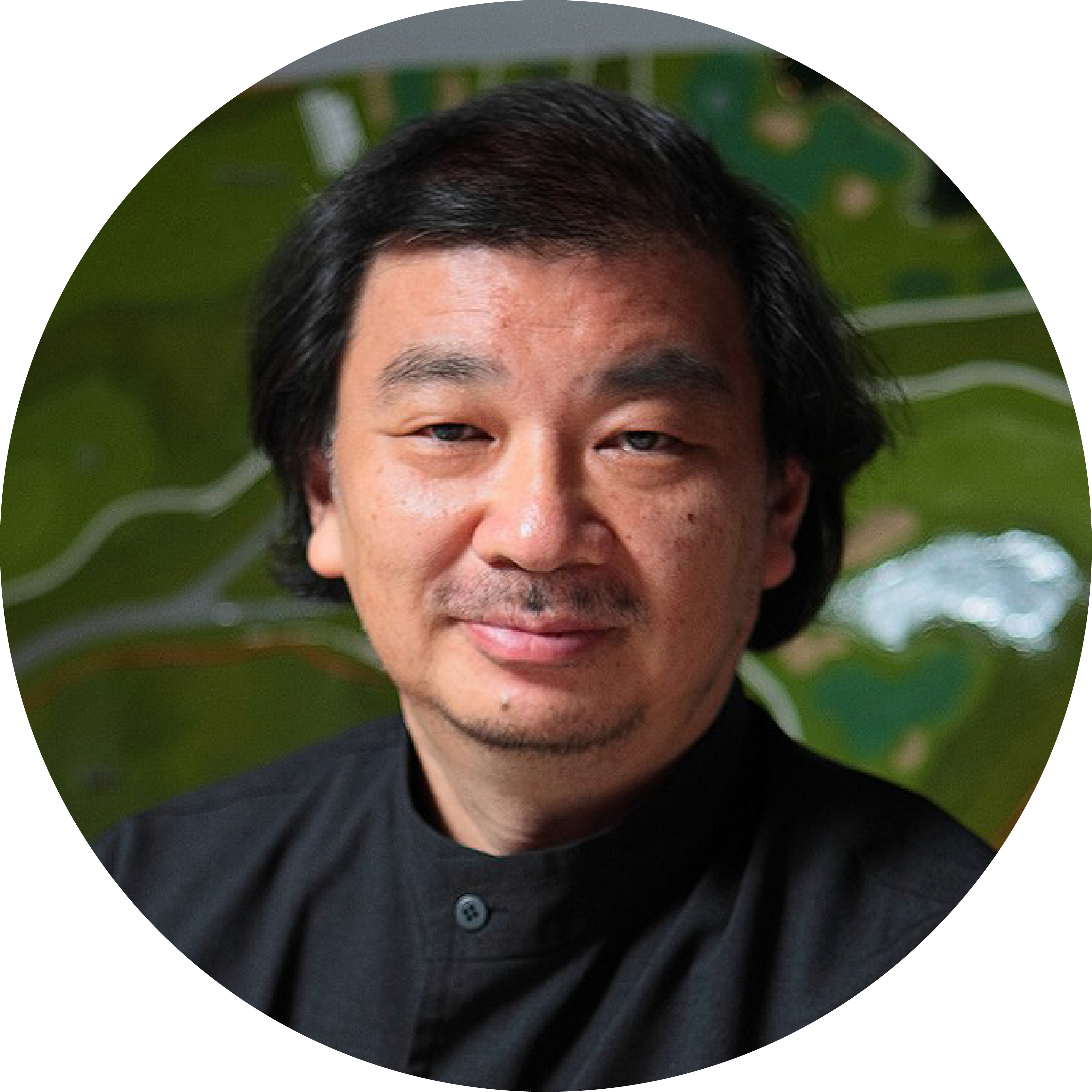Keynote: “Balancing Architectural Works and Social Contributions”

Prof. Shigeru Ban
Founder and Principal of Shigeru Ban Architects
Professor, Shibaura Institute of Techonology
2014 Pritzker Architecture Prize recipient
About the Speaker
Shigeru Ban, a recipient of the Pritzker Architecture Prize, has created his innovative architectural works using unconventional materials such as paper over 40 years of his career as an architect. He has also worked relentlessly on the disaster relief efforts since 1995 up until now. In this lecture, Shigeru Ban refers to his past and the latest architectural works as well as his humanitarian activities, and explains on the works and humanitarian activities.
Born in Tokyo in 1957, Ban graduated from the Cooper Union with a Bachelor of Architecture in 1984. He founded Shigeru Ban Architects in 1985 and later established offices in New York and Paris. Since 1985, Ban has developed a unique structural system using recycled paper as a building material and, alongside his architectural work, has been engaged in disaster relief efforts worldwide. In 1995, he founded a nonprofit organization named Voluntary Architects’ Network (VAN). He is the recipient of le grade de commandeur of L’Ordre des Arts et des Lettres, France (2014), the Pritzker Architecture Prize (2014), the Mother Teresa Social Justice Award (2017), the Princess of Asturias Award for Concord (2022), and the Praemium Imperiale for Architecture (2024). His major works include Centre Pompidou Metz (2010, France), Cardboard Cathedral (2013, NZ), La Seine Musicale (2017, France), Mt. Fuji World Heritage Centre Shizuoka (2017, France), Tainan Art Museum (2019), SIMOSE (2023), and Toyota City Museum (2024). Currently, he serves as Special Guest Professor at Shibaura Institute of Technology. In March 2023, he was named a new member of the Japan Art Academy.
About the Talk
Ticket Information
Special Event Tickets: $300 (non-HKU) | $180 (HKU student/staff)
- Includes presentation and Q&A session
- Separate tickets made available for purchase by outside guests who are not registered for the conference.
- Conference registrants:
Do not purchase a ticket— this event is included with your registration!
 Centre Pompidou-Metz, France, 2010
Centre Pompidou-Metz, France, 2010  Mt.Fuji World Heritage Centre, Japan, 2017
Mt.Fuji World Heritage Centre, Japan, 2017  Toyota City Museum, Japan, 2024
Toyota City Museum, Japan, 2024